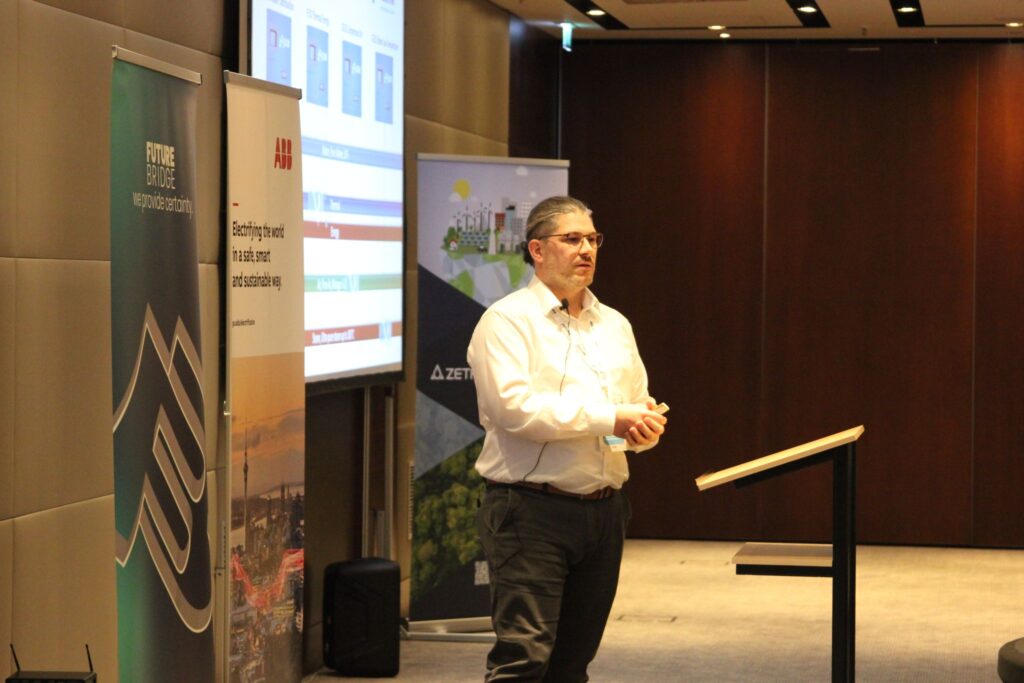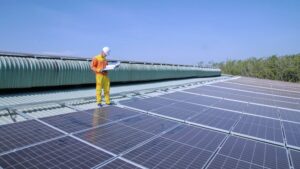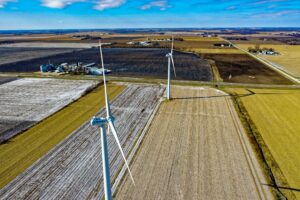The 2nd Net Zero Life Sciences Forum was held on November 16-17, 2023 in Berlin, Germany. It focused on strategies and solutions to reduce energy usage and greenhouse gas emissions across the pharmaceutical and biotech sectors. Organized by Future Bridge, the exclusive event convened leaders across the industry. This is to discuss progress made and challenges ahead on the road to decarbonization and carbon neutrality goals.
In this article, we will go through a recap of the 2nd Net Zero Life Sciences Forum. We will see in detail what the event was about, what topics were covered, who the speakers were, and more. So, let’s get started:
2nd Net Zero Life Sciences Forum: About the event
The 2nd Net Zero Life Sciences Forum focused on various aspects of sustainability or energy efficiency and emission reduction. It includes the roadmap to Carbon Zero, operationalizing sustainability, and tackling the Scope 3 GHG challenge. It also covered technical topics. This includes Energy transition, Carbon neutral facility design, HVAC optimization, Cleanroom innovations, Renewable energy integration, Carbon data management, Continuous site improvement, and Water and Waste management.
Our expert speakers shared their insights and practical experiences. Moreover, they highlighted the latest strategies, technologies, and best practices for achieving carbon neutrality.

The 2nd Net Zero Life Sciences Forum offered a unique opportunity for participants. They were able to connect, share ideas and experiences. Furthermore, they were able to forge new business relationships. We invited industry leaders to join us for this exclusive, small-scale event. This is to gain valuable insights, participate in engaging discussions, and network with peers. So, at the 2nd Net Zero Life Sciences Forum, we were excited to pave the way for a more sustainable future in the biopharma industry.
2nd Net Zero Life Sciences Forum: What did the speakers discuss?
This section will discuss what each speaker covered in the 2nd Net Zero Life Sciences Forum, leading to immense value to the attendees and energy efficiency and emission reduction in their operations. So, let’s dive in:
Mukul Bhuchar Head SHE & Sustainability, Dr. Reddy’s Laboratories
The speaker delved into the essential components of a “Roadmap to Net Zero”. He emphasized the pivotal role of strategic planning and technology selection. Moreover, key strategies for achieving positive Net Zero goals were highlighted. It focused on the critical role of technology in reaching these targets. The discussion also emphasized the significance of process optimization technologies as key facilitators. This is in the broader effort to achieve decarbonization and a sustainable, net-zero future.
Joseph Keller Head of Health, Safety, Security and Environment, Ethypharm
The speaker delved into the critical topic of Risk Management for Decarbonization and Carbon Offset. He emphasized the need to address risks linked to carbon offset projects. So, the discussion revolved around developing strategies for effective risk mitigation. This is in decarbonization efforts, aiming to maximize success in the transition to a low-carbon future. The discourse also highlighted the importance of thoughtful planning and proactive measures. It helps to navigate challenges associated with decarbonization initiatives and carbon offset projects.
Nassera Ahmed Senior Director, Sustainability, Coloplast
The speaker delved into the imperative of “Decarbonizing the Value Chain” with a focus on engaging suppliers strategically. Emphasizing supplier collaboration as a key driver, the discussion revolved around the pivotal role suppliers play. It helps in achieving sustainability goals. The talk underscored the need for a comprehensive approach to decarbonization. So, it highlighted how fostering strong partnerships with suppliers can be a strategic avenue. It can drive positive environmental impact throughout the entire value chain.
Vendor Session
The vendor session delved into Carbon Measurement and Accounting. It emphasized the significance of accurate measurements. Furthermore, it highlighted the role of digital open carbon infrastructure. It also showcased key tools for effective carbon accounting and reporting. The discussion underscored the pivotal role of carbon measurement in shaping robust sustainability strategies. So, it provided insights into leveraging these metrics for impactful environmental initiatives.
Varun Kaushik Head of Engineering, Glenmark Pharmaceuticals Limited
In the discussion on challenges linked to the Natural Gas Reduction Program and its role in achieving net-zero goals, the speaker delved into three key aspects. First, addressing technological constraints is crucial for transitioning to cleaner alternatives. Second, the necessity of significant infrastructure and investment was emphasized. This is to support the shift towards low-carbon energy sources. Lastly, the speaker underscored the importance of developing effective regulatory and policy frameworks. It helps to incentivize emissions reduction in the pursuit of environmental sustainability.
Vendor Session
The vendor session focused on the pivotal role of green energy integration in realizing Net Zero objectives. So, emphasizing the significance of Power Purchase Agreement (PPA) agreements, the discussion underscored their facilitation in driving the adoption of sustainable energy. The session delved into the global scalability of PPA agreements. It also explored opportunities and challenges for their widespread implementation. This is a catalyst for a more impactful and sustainable energy transition.
Thomas Gosmann Sustainability Lead Pharma Engineering, Bayer AG
In the speaker’s presentation on Facility Energy Monitoring and Management, emphasis was placed on fostering a culture of continuous improvement in energy efficiency. The discussion delved into the design of robust energy management systems to enhance overall performance. Additionally, the importance of decentralized management was highlighted. This was with a focus on utilizing dashboard Key Performance Indicators (KPIs). It aids in empowering effective decision-making in optimizing facility energy usage for sustainability.
Moritz Edlfurtner Advanced Expert Smart & Sustainable Assets, Roche Diagnostics GmbH
The speaker delved into the critical topic of air treatment and its impact on energy efficiency. He focused on filtration proficiency. Moreover, emphasizing the pivotal role of effective filtration in optimizing energy usage, the discussion highlighted strategies. These were to simultaneously enhance indoor air quality and reduce energy consumption. The talk also underscored the importance of leveraging filtration efficiency as a key component in creating sustainable and energy-efficient environments.
Olaf Krebs Head of Global Engineering Services, Boehringer Ingelheim
In the presentation, the speaker emphasized the significance of heat recovery projects as a pivotal tool for reducing industrial carbon footprints. The discussion centered around the untapped potential of harnessing wasted heat. It also highlighted the efficiency gains achievable through cogeneration technology (CHP). The integration of energy monitoring systems, process system balancing, and the importance of regular maintenance were underscored. This is a key element in achieving substantial industrial carbon footprint reduction.
Luca Brotto Application Manager, Axel Zadina Business Development Manager, HygroMatik GmbH
During the discussion on Environmental Monitoring and its Role in Energy Efficiency, speakers emphasized the crucial role of controlling and monitoring air conditioning systems. They highlighted the significance of dust and contaminants control through filtration and pressure regulation, temperature control through modulation and recovery, and monitoring variables both locally and remotely. The discussion also delved into the impact of humidity on processes and explored isothermal and adiabatic technologies. They also presented a case study on replacing steam humidifiers with high-pressure nozzles for evaporative cooling to enhance performance and efficiency.
Carsten Jasper Director of Validations & Systems Operations Europe & Asia, Charles River Laboratories
In the insightful discussion, the speaker emphasized the critical role of temperature monitoring systems in achieving a net-zero environment. Focusing on revolutionizing indoor environments, the talk highlighted the transformative impact of harnessing precise control over dust, temperature, and humidity. By optimizing these factors, the speaker argued, enhanced processes can be realized. Furthermore, it can contribute significantly to the overarching goal of achieving a sustainable and environmentally friendly net-zero outcome.
Advansor – Presenting Partner
The presenting partner highlighted Sustainable and Efficient Climate Solutions, emphasizing trends and advantages of CO2 solutions. The discussion centered on reducing CO2 emissions. This is through innovative approaches, showcasing the benefits of CO2 utilization. Additionally, the presentation explored the concept of higher energy efficiency achieved through combined cooling and heating solutions. It features real-life cases that demonstrated proven energy savings and substantial reductions in CO2 emissions.
The 2nd Net Zero Life Sciences Forum was marked by insightful panel discussions that delved into critical issues. It was with a particular focus on achieving the Net Zero objective concerning CO2 emissions. The discussions revolved around the practicality of implementing plans to effectively address and mitigate carbon emissions. These panel sessions provided a platform for experts and stakeholders to share perspectives, strategies, and potential solutions. In addition to the panel discussions, the event featured exclusive reserved sessions sponsored by key industry players.
ZETA, a bronze sponsor, hosted a session that brought valuable insights, and ABB, a platinum sponsor, curated a reserved session. They highlighted their contributions to the conference’s overarching goals. Thermal Energy International, another bronze sponsor, also conducted a reserved session. They contributed to the diversity of discussions and fostered collaboration among participants.
Let us now move ahead and look at who the sponsors were and what they stand for as a company.
2nd Net Zero Life Sciences Forum: Let’s talk about the sponsors
In this section, we will look at each sponsor in detail. So, let us dive in:
ABB – Platinum Sponsor and Cocktail Reception Sponsor
ABB, a technology powerhouse, serves as the presenting partner and cocktail reception partner. With 130 years of excellence, ABB excels in electrification and automation. It connects engineering know-how to optimize manufacturing, power, and operations. With a commitment to sustainability, ABB’s Electrification business offers a comprehensive portfolio. Moreover, it ensures safe, smart, and sustainable electrification from substations to sockets. ABB’s 105,000 employees drive innovations for industrial transformation. As a result, it makes them a pivotal force in creating a resource-efficient future.
ZETA – Bronze Sponsor
ZETA, a global biopharmaceutical solutions provider, acts as a bronze sponsor. With 27 subsidiaries and 1200 qualified employees, ZETA specializes in planning, automation, and digitalization of customized biopharmaceutical facilities. From anti-cancer drugs to vaccines, ZETA offers tailor-made solutions. It supports clients from laboratory to industrial production. A market leader in digital solutions, ZETA’s Smart Engineering Services creates digital twins. As a result, it contributes to a sustainable future through decarbonization strategies in biopharmaceutical manufacturing.
EMERSON – Bronze Sponsor
Emerson, a global technology and software company, proudly sponsors as a bronze sponsor. Operating at the forefront of innovation, Emerson provides solutions for essential industries worldwide. With a focus on automation and sustainability, Emerson’s portfolio, including AspenTech, optimizes operations. It also ensures personnel safety and reduces emissions. Moreover, it helps manufacturers achieve their sustainability goals. So, as a key player in technology and software, Emerson is dedicated to advancing industries that are crucial for the world.
CAREL – Bronze Sponsor
CAREL is a world leader in control solutions for HVAC and more. It serves as a bronze sponsor. Founded in 1973, CAREL brings energy-saving solutions to air-conditioning, refrigeration, and heating. With a turnover exceeding 420 million euros in 2021, CAREL allocates approximately 4.5% of sales to Research & Development. So, operating globally with over 1800 employees and 31 subsidiaries, CAREL’s commitment to reducing environmental impact makes it a vital contributor. This is to sustainable and efficient systems worldwide.
THERMAL ENERGY INTERNATIONAL – Bronze Sponsor
Thermal Energy International proudly sponsors as a bronze sponsor. It contributes to sustainable energy solutions. So, it is a cleantech company and accredited professional engineering firm, that specializes in capturing up to 80% of wasted energy from boiler plant and steam system operations. Moreover, their solutions are designed to efficiently recycle this energy back into processes. As a result, emphasizing cost-effectiveness and sustainability
ADVANSOR – Presenting Partner
Advansor takes center stage as a presenting partner. It specializes in sustainable CO2 climate solutions. As a market leader since 2006, Advansor has designed over 14,000 CO2 systems for global commercial and industrial cooling and heating. Embracing CO2 as a climate-friendly refrigerant, Advansor’s solutions are non-toxic, non-flammable, and environmentally conscious. Additionally, their commitment to being ‘cool with CO2’ reflects their dedication. This is to provide innovative and eco-friendly solutions for a sustainable future.
To sum up
The 2nd Net Zero Life Sciences Forum provided immense value to attendees looking to accelerate their decarbonization journeys. The event facilitated productive knowledge-sharing and networking opportunities for sustainability heads from across the biopharma sector to align on strategies and find innovative solutions.
Participants gained strategic clarity on leveraging new technologies and optimizing processes to reach ambitious carbon neutrality goals. The sessions offered technical depth into key areas like facility upgrades, cleanroom designs, supply chain improvements, and advanced energy management. Attendees also connected with peers and vendors to address pressing carbon reduction challenges.
Industry-wide sustainability summits like this are crucial for maintaining momentum and direction towards urgent climate goals. Moreover, they enable transparency, collaboration, and accountability needed to decouple business growth from emissions at scale. So, companies must regularly participate to benchmark progress, have access to the latest insights, and catalyze the systemic change required for a net zero future.
For leaders interested in joining upcoming zero carbon strategy dialogues, head over to netzero-events.com or www.future-bridge.eu. The next forums will drive further alignment across the value chain on priorities and solutions for enabling carbon-neutral operations.





